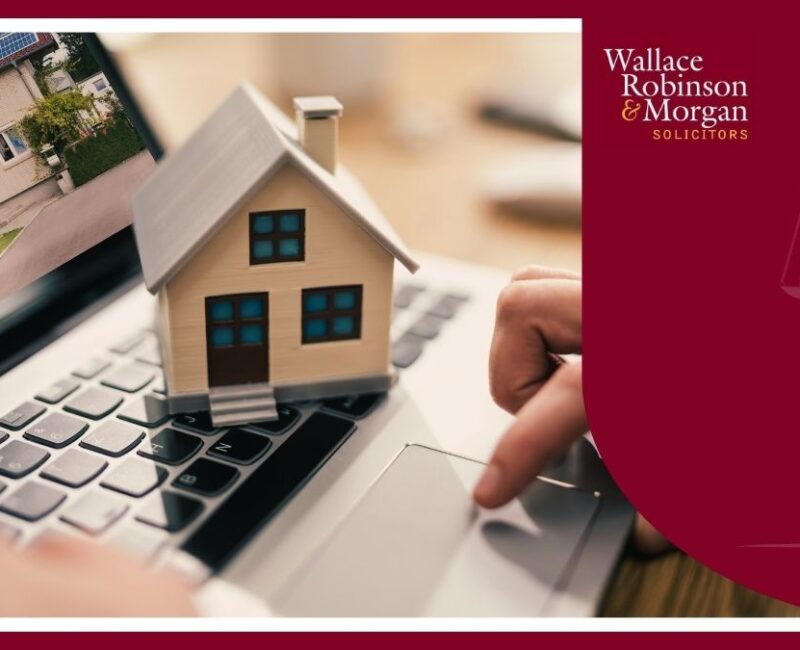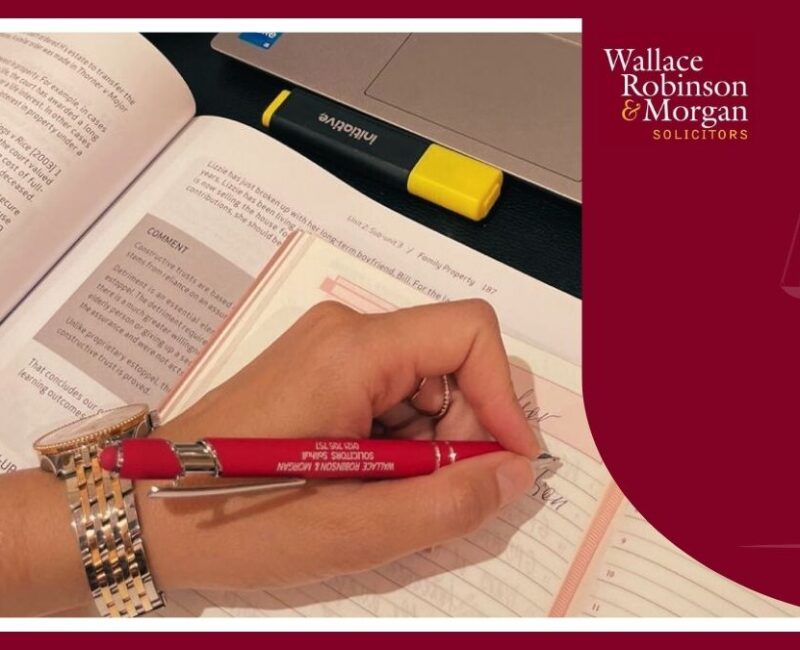We can guide you through a smoother home moving process
At Wallace Robinson & Morgan, our team of experienced residential conveyancers provide an expert service in all matters relating to residential property. Whether you are buying, selling, transferring a property, remortgaging or extending a lease, we are here to ensure that your transaction progresses as efficiently and smoothly as possible.
Our Residential Property Services:
Here at Wallace Robinson & Morgan, our expert residential conveyancers can assist with a wide range of property transactions, including:
- Buying and Selling Residential Property
- Lease Extensions
- Purchase of Freeholds
- Remortgages and Equity Release transactions
- Equity Transfers
Frequently Asked Questions
Find answers to common questions about residential property matters. Our FAQs provide guidance to make your property transactions seamless.
Conveyancing fees are made up of the fees charged by your solicitor for their time and the fees charged by third parties (also known as disbursements) for searches and other checks.
The fees charged by your solicitor will vary depending on a number of factors.
If you would like a quote from Wallace Robinson & Morgan, please contact enquiries@wallacerobinson.co.uk or call us on 0121 705 7571 and a member of our conveyancing team will assist.
It is usual for conveyancing fees to be settled on completion of the transaction. It should be noted however that your conveyancer may request an upfront payment on account of the various searches and checks that need to be carried out as part of the transaction.
The timescale for completing a sale or purchase of a property depends on a number of factors including the complexity of the transaction and the length of the chain.
If you are selling or buying a freehold property, the typical timescale is around 8-10 weeks. This is provided there are no issues with the transaction and the chain.
If you are selling or buying a leasehold property, the typical timescale is around 12 weeks. This is provided there are no issues with the transaction and the chain.
Exchange of contracts is the point in which the transaction becomes legally binding between the buyer and seller. Up until this point, either side can usually withdraw without penalty.
Prior to exchange of contracts, the seller and buyer’s conveyancer will have arranged for their clients to sign an identical copy of the contract. Once all checks and enquiries have been satisfied, the seller and buyers’ solicitor will exchange contracts on the phone having been authorised to do so by their client.
During the phone conversation, the seller and buyer’s conveyancer will read over the contract to check that they are both holding an identical copy. They will then insert the date of completion and date the contract. Once the contract is dated, the transaction is legally binding.
Once contracts are exchanged, there are financial penalties if either party fail to complete the transaction on the agreed completion date.
If you own a freehold property, you own the land and property situated on the land.
If you own a leasehold property, instead of owning the land in which the property is situated, you are granted a lease which gives you a right to occupy the property for the number of year stated within the lease. The lease will give you various rights over the communal areas such as paths, parking areas, roads, halls and stairwells.
Service charge is a sum of money payable to the landlord or their agents. The money is used towards the cost of maintaining and insuring the building or area in which the property is situated.
Ground rent is a sum of money payable to the landlord who owns the land and building in which your property is situated. The amount payable will be set out within your lease and may be subject to review.
Your conveyancer will send the funds to the sellers’ solicitor on the day of completion. Once the sellers’ solicitor has received the funds, they will confirm completion and release the keys. The keys are usually available at the estate agents for collection unless other arrangements have been made with the seller.
Completion usually takes place between 12 and 2pm but this depends on how long the chain is.
Residential Conveyancing Services
Download Our Free Guide
Download our simple guide to a residential conveyancing transaction
Our Dedicated Team
Book an appointment with one of our knowledgeable Residential Property solicitors, who will guide you through your property transaction with expert, personalised advice.
Call us at 0121 705 7571 or fill out the form below—your privacy is guaranteed—and we’ll arrange a convenient time to discuss your needs.

Tim Langford

Michelle Layton

Billie-Ann Samardzija

Sarah Nixon

Parris Brooks
Our Latest News
Stay informed with insights from our legal experts! Our articles cover a range of topics, offering practical advice and valuable tips to help you navigate legal matters with confidence. Check back regularly for updates tailored to your needs.
How to Get Your Home Ready for Sale: A Simple Preparation Guide
What the Rent Reform 2025 Means for Landlords
What the New Rent Reform in the UK Means for Renters
Upcoming SDLT Changes: What Property Buyers and Sellers Need to Know
Property Ownership in England & Wales: A Short Guide






What Clients Say About Us?
How Can We Help?
Fill in the form below and a member of our team will get back to you as soon as possible.






